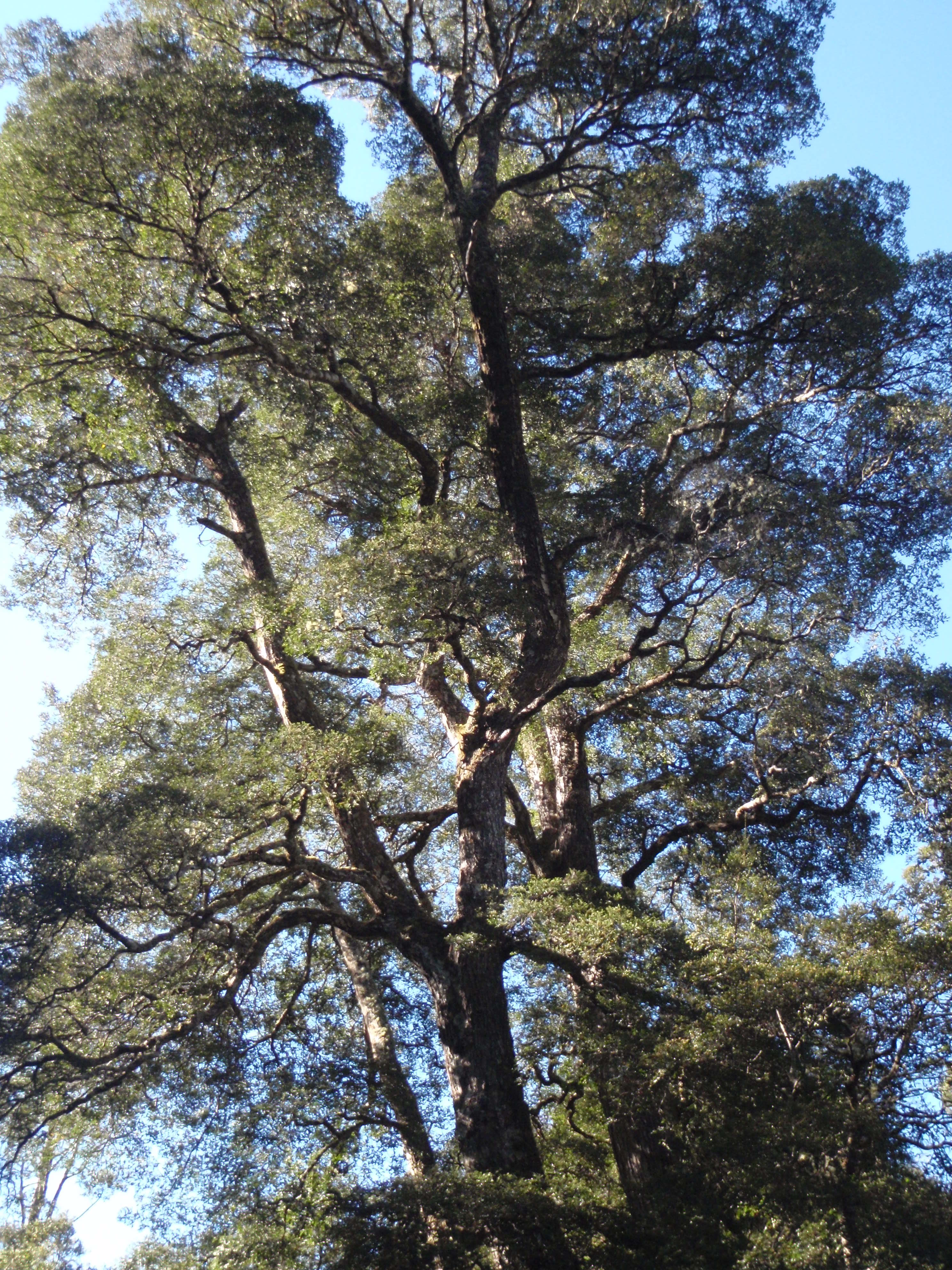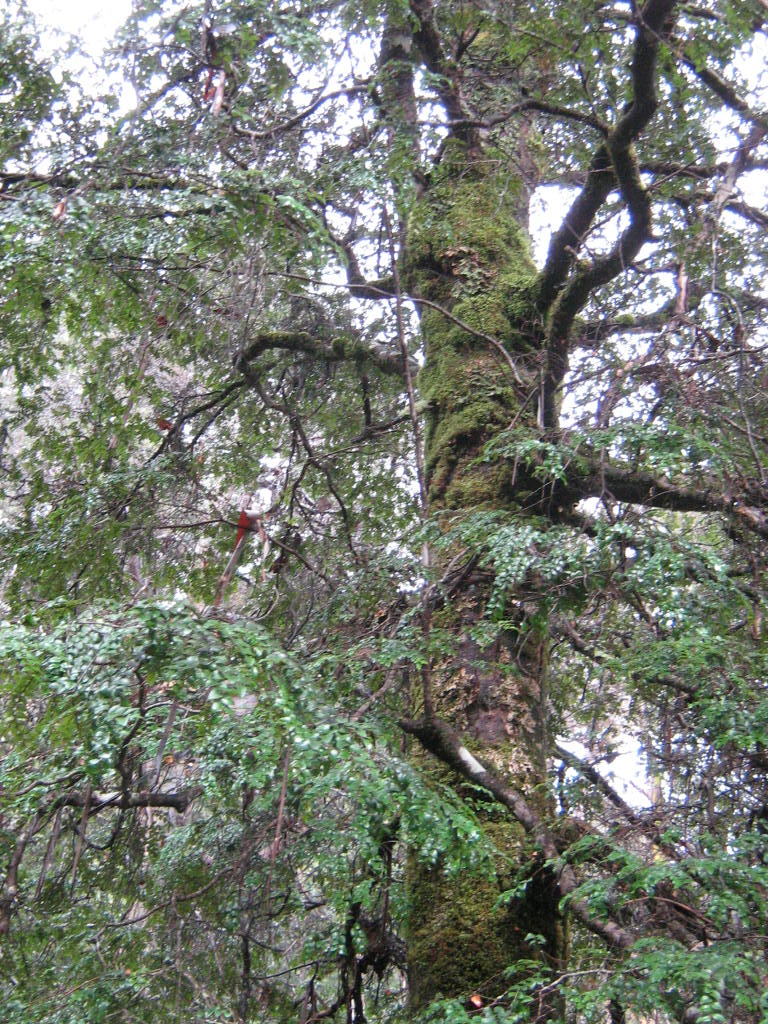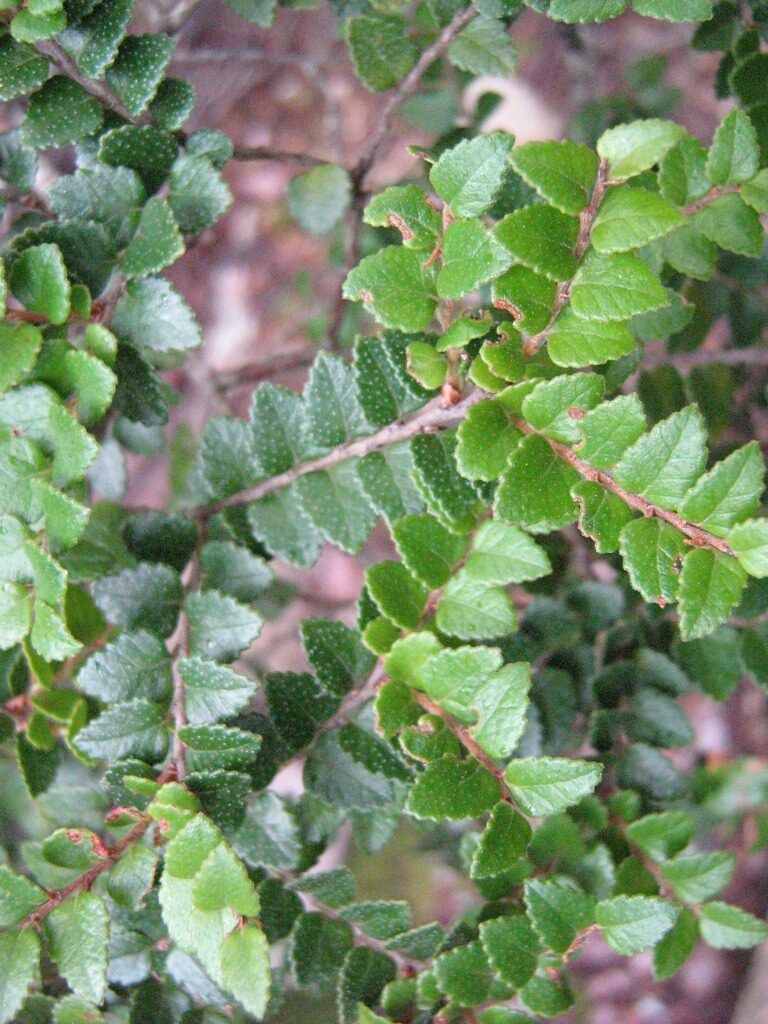Scientific Name: Nothofagus cunninghamii
Common Name: myrtle beech
Family Classification (Clade): Eudicots
Family: Nothofagaceae
Form Description: Tree or sometimes a dense shrub.
Height (m): 2 – 50
Flowers: On new growth. Male: solitary stalked, hanging stamens; Female: unstalked in threes in axils.
Fruit: Nutlet – 4mm in diameter, with a central small flat seed and two winged seeds (both germinable).
Municipality
Plant Communities
Habitat Notes
Dominates rainforest throughout most of the state. It also occurs as an understorey tree in tall eucalypt forest and extends as a shrub into the sub-alpine and alpine zones.
Site Tolerance
Moist, Shady
Soil Tolerance
Fertile, Loam, Well-drained
Frost Tolerance
Hardy
General Notes
Slow growing in cultivation. Will stand full sun but prefers shade. The timber, pinkish-brown in colour, takes a fine polish and is valued for cabinet work, joinery, floor-boards and the heels of shoes.
Propagation Calendar
-
Flowering Month
Jan Feb Mar Apr May Jun Jul Aug Sep Oct Nov Dec -
Seed Collecting Month
Jan Feb Mar Apr May Jun Jul Aug Sep Oct Nov Dec -
Sowing Month
Jan Feb Mar Apr May Jun Jul Aug Sep Oct Nov Dec -
Cutting Month
Jan Feb Mar Apr May Jun Jul Aug Sep Oct Nov Dec
Propagation Method
Seed Information
Seed Collection
Seed falls over several months; later in the season has lower viability. Heavy crops usually every 2-3 years.
Seed Treatment Method
Standard Scatter seed thinly on to damp potting mix. Hold seed in place by covering with more potting mix to approximately the depth of the seed size.
Seed Storage Life
Up to 4 years
Seed Treatment Notes
Best sown fresh. Storage at 3-5°C will help extend viability. Viable seed sinks after soaking in water for 48 hrs. Highest viability (about 45%) occurs in heavy seed crop years and is higher for seed picked at the peak of collection period. Higher altitudes reduce viability.
Germination Time
6-8 weeks
Cutting & Division Information
Usually give a low percentage of success.


